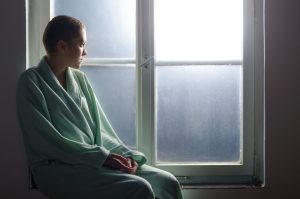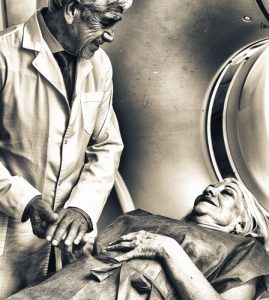Many patients who are dying face a sterile environment in a hospital, not comfortable and with many good intentioned healthcare professionals. Unfortunately, many healthcare professionals are not trained to help individuals deal with death, or are able to emotionally and spiritually offer consolation. The death of a person is seen more as a failure than seeing death as part of a new step in existence or part of living itself.
In some cases, the dying patient is cared by also an older relative who also is facing emotional as well their own physical struggles. This can also compound issues.
The dying patient in essence has multiple needs from a physical, emotional, mental and spiritual standpoint. They need not only physical care but whole care of their entire essence. Death and dying is a scary time in life but it is part of life. Death is not a failure, nor is it something unnatural. It is the second biggest event in one’s life next to birth itself. Yet it is shunned due to various taboos. Helping someone die well is part of the importance of end of life care. Palliative Care looks to help individuals deal with cancer life diseases, while Hospice prepares the person for death by not looking to necessarily heal but manage symptoms.
Hence care for the dying is usually divided up amongst various groups from doctors to nurses to family to ministers and chaplains. Each playing a pivotal part. In some cases, individuals fall through the cracks and their most important emotional and spiritual needs are neglected. To ensure complete care though, it is important to understand a patient’s rights when dying and what are the most important aspects to address for the dying

Looking at physical needs are the first aspect. It is essential to give comfort. Pain management, breathing, and overall comfort is key. Pain management looks to address pain and discomfort from a chronic and acute sense. Unfortunately, not all pain can be caught in time and in some cases, individuals needlessly suffer from a physical standpoint. Legal statues have been passed that insist that treating pain is essential part of care.
Beyond pain, other issues such as breathing, skin sores, insomnia, loss of appetite, constipation, dehydration, nausea and fatigue are all issues caregivers must address in providing care to the dying. Keeping the patient comfortable and out of distress is a key part of care of the dying patient and it is a right of every human being to die with dignity and limited pain as possible.
In these cases, the six month period of hospice can supply a person with many pain management strategies. Unfortunately, many individuals do not utilize this service or consider it a taboo of giving up on life. None of this is true. In fact, some may recover or live longer, but this is not the goal of hospice. Hospice is about pain management and comfort. This is why it is so important to utilize to maintain one’s own dignity and comfort in dying.
Beyond these physical needs comes the numerous emotional and mental needs of the dying patient. Many want to be healed or fear death. More pastorally trained healthcare providers can also give the dying some sort of care in this regard. First, by speaking to them as a person. This is critical. Caregivers need to speak to dying as the living. Many are spoken about in the shadows as if they are already gone. It is important to understand the emotional grief of the dying. False promises are not encouraged but hope. Hope that they will not die alone. Hope that their wishes will be carried out. Hope that they will be remembered. And in some cases, discussing death no matter how uncomfortable.
Many dying wish to discuss the elephant in the room but are left to the side and emotionally left to themselves while family mourn them in advance or nurses treat them merely as a number. This is truly sad because the dying are still alive. They still have emotional needs and desires.
Beyond these emotional issues is also the spiritual. This is a more difficult road to cross because some individuals may be of a different faith or have no faith at all. One should speak to the family or look for cues. One should not look to convert one to another ideal, but merely discuss faith or what the dying wishes to express and ensure that the proper religious authorities meet their spiritual needs. Many religious cultures have a variety of needs to be met as death approaches and death anxiety can be lessened by many when religious needs are met.
As an individual embarks on the road of death, they need companions to help them. Due to taboo of death discussions, or seeing death as a medical failure, or seeing patients not as full human beings, then dignity in death is lessened. It is important for care givers to ensure full human dignity at the physical, emotional, mental and spiritual levels are met for the dying.
Please also consider reviewing AIHCP’s Pastoral Thanatology Certification and see if it meets your academic and professional goals. The program is online and independent study and open to qualified professionals seeking a four year certification in Pastoral Thanatology
Resources
Care of the Dying Patient edited by David A. Fleming and John C. Hagan III











